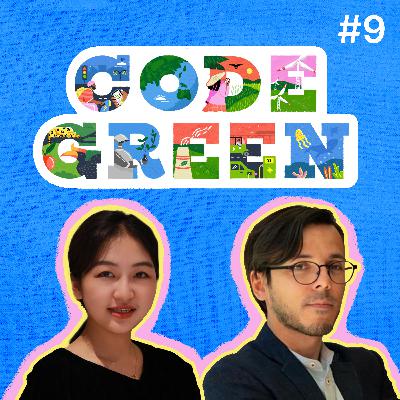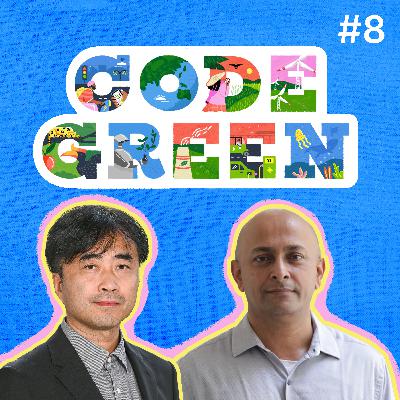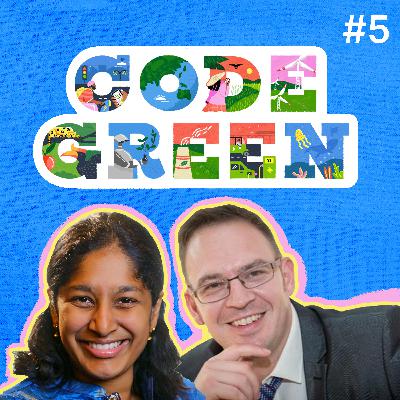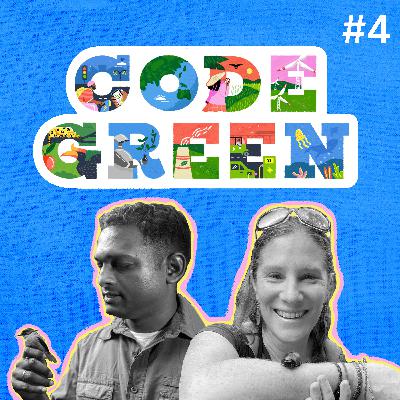09: Funding & Framing Asia’s Climate Futures
Description
Across this series, we’ve traced the many emergent tensions between AI as both a potential solution and barrier to addressing the world’s most urgent climate and environmental dilemmas. In this final episode, Hanyuan ‘Karen’ Wang and Luis Felipe R. Murrillo discuss the complex arena of climate finance - highlighting these key tensions and potential pathways forward. Hanyuan discusses the need for tools for businesses to navigate the complex climate policy landscape, and the role of private-sector involvement. Luis highlights the difficulties of collecting quality climate data, the importance of data stewardship in bridging the gaps between experts and community needs, and the potential of ‘commoning’ as a way to envision alternate, sustainable frameworks and funding models.
Speakers
Hanyuan ‘Karen’ Wang
CEO and Founder, Climind
Climind is a platform that delivers actionable climate data infrastructure through AI technologies to facilitate mitigation and adaptation solutions. Hanyuan (Karen) Wang is the first Chinese female to be selected as a Young Leader for the SDGs recognized by the United Nations. Additionally, she serves on the board of NGOs globally, including being the youngest Board of Directors for the Foundation for the Museum of the United Nations - UN Live. She is also on the Advisory Board Members of AI Hong Kong. Karen was a research assistant at Imperial College London's Centre for Climate Finance and Investment (CCFI), where her work centers on voluntary carbon markets, climate risks, and nature-based solutions with a particular focus on the Asian Market . She was named to Forbes' 30 Under 30. She went to Hong Kong Baptist University, Imperial College London, and is a Schwarzman Scholar from Tsinghua University.
Luis Felipe (LF) R. Murillo
Assistant Professor of Anthropology at University of Notre Dame
Luis Felipe R. Murillo’s work is primarily dedicated to the study of the intersections between computing and politics from an anthropological perspective. Based on long-term, collaborative ethnographic research, his research explores questions of commoning and anti-commoning in science and technology. Across several projects spanning hacker networks in the Pacific Rim to open technology development at CERN, LF's work investigates how underground computing collectives design and implement digital technologies in response to pressing social, political, and environmental issues. He is the author of Common Circuits: Hacking Alternative Political Futures recently published by Stanford University Press.
You can read the transcript for this episode here.
Show Notes
New Expert Eyes Over Fukushima: Open Source Responses to the 3/11 Disaster in Japan
Community Office Navigating the New Arctic (NNA)
Camera Traps in Code Green Call of the W(AI)ld
HKU Jockey Club Enterprise Sustainability Global Research Institute
Sustainability and Climate Risk by GARP
Hong Kong Science & Technology Park
Hong Kong ESG standards and Index
Check out the Code Green glossary for more terms.
This podcast series is accompanied by a monthly newsletter - sign up for updates here. For more about this project, visit our website codegreen.asia
Credits
Audio Editing: Creator Studio Goa by Winfluence Media
Production Support: Shivranjana Rathore and Meredith Stinger
Cover Design: Nayantara Surendranath
Attributions
Intro and Outro: Retro Sounds, Alban_Gogh
Transitions - Meditative Background Music, white_records
















